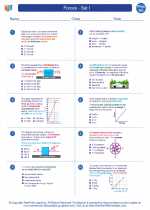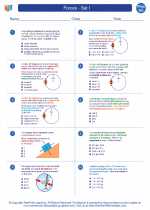Habitat Destruction and Fragmentation
Habitat destruction and fragmentation are major environmental issues that have detrimental effects on ecosystems and biodiversity.
Explanation
Habitat destruction refers to the process by which natural habitats are altered, degraded, or completely eliminated, often due to human activities such as urban development, agriculture, logging, and mining. This results in the loss of critical resources and habitats for plant and animal species, leading to a decline in biodiversity.
Fragmentation occurs when large, continuous habitats are broken up into smaller, isolated patches due to human activities or natural events such as deforestation, road construction, and agricultural expansion. This fragmentation can disrupt ecological processes and interactions, leading to decreased genetic diversity and increased vulnerability to environmental disturbances.
Causes of Habitat Destruction and Fragmentation
There are several causes of habitat destruction and fragmentation, including:
- Urbanization and infrastructure development
- Agricultural expansion and land clearing
- Logging and deforestation
- Mining and resource extraction
- Climate change and natural disasters
Effects
The effects of habitat destruction and fragmentation include:
- Loss of biodiversity and species extinction
- Disruption of ecological processes and interactions
- Decreased genetic diversity and population isolation
- Increased vulnerability to invasive species and diseases
- Impacts on ecosystem services and human well-being
Study Guide
To better understand habitat destruction and fragmentation, consider the following study guide:
Key Concepts
- Definition of habitat destruction and fragmentation
- Causes and human activities contributing to habitat loss
- Effects on biodiversity and ecosystem functioning
Case Studies
- Research and analyze specific examples of habitat destruction and fragmentation in different regions of the world
- Examine the impact of habitat loss on endangered species and ecosystems
Conservation Strategies
- Explore and evaluate conservation and restoration efforts to mitigate habitat destruction and fragmentation
- Discuss the role of protected areas and habitat corridors in preserving connectivity and biodiversity
Current Events
- Stay updated on recent news and developments related to habitat destruction and fragmentation
- Reflect on the intersection of environmental policies, human activities, and conservation efforts
By engaging with these key concepts, case studies, conservation strategies, and current events, you can develop a comprehensive understanding of habitat destruction and fragmentation and its implications for global ecosystems.
.◂Physics Worksheets and Study Guides High School. Forces - Set I

 Worksheet/Answer key
Worksheet/Answer key
 Worksheet/Answer key
Worksheet/Answer key
 Worksheet/Answer key
Worksheet/Answer key
